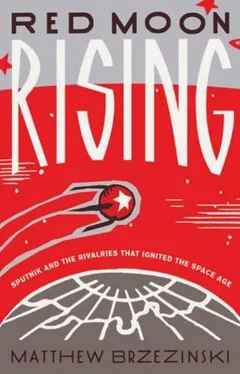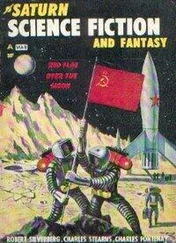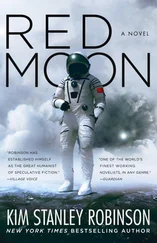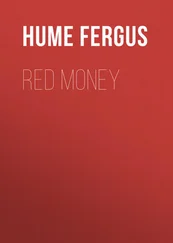193 “His unreasonable activities leave us no choice”: Ibid., p. 45.
194 a small and unobtrusive squib would appear on the back page of Pravda : Sergei Khrushchev, Nikita Khrushchev , p. 250.
The evening sessions had run well past ten: The account of the meeting in Kiev is drawn from telephone interviews with Sergei Khrushchev in September 2006 and from his memoir.
195 “I’ll be back”: Sergei Khrushchev, Nikita Khrushchev , pp. 259-60; also author telephone interview with Sergei Khrushchev, September 15, 2006.
196 the lead story in Pravda on the morning of October 5: Golovanov, Korolev , p. 533.197 orbital decay: I. V. Meshcheriakov, V Mire Kosmonavtiki (Nizhny Novgorod: Russki Kupets, 1996), pp. 35-36.
crossing the equator every ninety-six minutes at a sixty-five-degree angle: Valentin Glushko, ed., Malenkaya Entsiklopedia Kosmonavtiki (Moscow: Sovetskaya Entsiklopedia, 1970), p. 520.
The exact number would turn out to be ninety-two days: Ibid.198 “We were all too focused”: Golovanov, Korolev , p. 543.
“It was late”: Chertok, Rakety I Lyudi , vol. 2, p. 195.
“We thought the satellite”: Bille and Lishock, The First Space Race , p. 104.
“This date”: Burrows, This New Ocean , p. 197.
“The whole world is abuzz”: Golovanov, Korolev , p. 524.
199 green for foreign press clippings, red for decoded diplomatic traffic: Sergei Khrushchev, Khrushchev on Khrushchev , p. 128.
“The achievement is immense”: Manchester Guardian , October 6, 1957.
“Myth has become reality”: Le Figaro , October 7, 1957.
“A turning point in civilization”: New York Times , October 6, 1957.
“in contrast with the first steps in the atomic age”: Monographs in Aerospace History no. 10: USIA, October 17, 1957, Report on World Opinion, at http://www.history.nasa.gov/45thann/html/pubs.
“validation of the superiority of Marxist-Leninist technology”: Ibid,
“the planetary era rings the death knell of colonialism”: Dickson, Sputnik , p. 131.
200 “With only a ball of metal”: Siddiqi, Sputnik and the Soviet Space Challenge , p. 171.
The European Assembly in Strasbourg… and other examples of shaken faith in the United States: Monographs in Aerospace History no. 10: USIA, October 17, 1957, Report on World Opinion, at http://www.history.nasa.gov/45thann/html/pubs.
200 “Public opinion in friendly countries shows decided concern”: Ibid.201 “People all over the world are pointing to the satellite”: Time , October 21, 1957.
“World’s First Artificial Satellite of the Earth Created in Soviet Union”: Pravda , October 6, 1957.
202 “The average American only cares for his car”: Harris, A New Command , p. 182.
“We could never understand”: David Akens, Army Ballistic Missile Agency Historical Monograph (Huntsville, Ala.: Redstone Arsenal, 1958), appendix A, at http://www.www.army.redstone.mil/history.
203 he astounded Korolev by asking where the satellites were placed: Siddiqi, Sputnik and the Soviet Space Challenge , p. 169.
“People in the Soviet Union did not complain during that era”: Author telephone interview with Sergei Khrushchev, September 15, 2006.
“I remember walking in Red Square”: Natalia Koroleva, interview in televised documentary film The Secret Designer (Toronto: Ryan Productions, 1994).
“They are well provided for”: Daniloff, The Kremlin and the Kosmos , p. 128.
“Our most brilliant missile designer could not hold a candle to Sergei Pavlovich Korolev”: Nikita Khrushchev, Khrushchev Remembers , vol. 2, p. 77.
204 “When we announced the successful testing of an intercontinental rocket”: McDougall, The Heavens and the Earth , p. 237.
205 “Initially, Father believed”: Author telephone interview with Sergei Khrushchev, September 15, 2006.
Yangel, a few months earlier, had successfully tested the R-12: Oruzhe Rossii , vol. 4 (Moscow: Military Parade, 1997), p. 77.
lobbying Nedelin to push for the R-16: Cadbury, Space Race , p. 182.
206 “In his able proposals”: Daniloff, The Kremlin and the Kosmos , p. 72.
“You know”: Khrushchev’s exchange with Korolev and Mikoyan is in Golovanov, Korolev , p. 544.
207 Khrushchev had commissioned poems: Harford, Korolev , p. 122. commemorative stamps: Golovanov, Korolev , p. 542.
“Now we are ahead of America”: Witkin, ed., The Challenge of the Sputniks , p. 71.
208 “Nowhere else would you find”: Ibid.
Beijing had blasted Khrushchev’s assault on Stalin as “revisionist”: Medvedev and Medvedev, Khrushchev , p. 72.
promised Mao missile technology, starting with the R-2: Semenov, ed., Raketno Kosmicheskaya Korporatsiya Energiya , p. 66.
209 He had the parts to assemble one more rocket: Chertok, Rakety I Lyudi , vol. 2, p. 199.
211 The hardware would have to come entirely off the shelf: Harford, Korolev , p. 132.
212 “My wife and I”: in Mozhorin, ed., Nachalo Kosmicheskoy Eri , p. 64.
“We’re returning to Tyura-Tam”: Ibid.
213 “What next?”: Divine, The Sputnik Challenge , p. 94.
“Shoot the Moon, Ike”: Time , November 11, 1957.
213 “Plunge heavily into this one”: http://www.spacereview.com/article/396/1.
214 “Let’s not look for scapegoats”: Legislative Origins of the National Aeronautics and Space Act: Proceedings of an Oral History Workshop Conducted April 3, 1992 , Monographs in Space History no. 8, http://www.history.nasa.gov/40than/legislat.pdf.
215 “Sputnik II absolutely made the decision for them”: Ibid.
“The greatly increased size of the second Sputnik”: Time , November 11, 1957.
“whether the Soviet Union might be using some new form”: Dickson, Sputnik , p. 143.
“As Chairman of the Committee”: www.spacereview.com/article/396/1.
“It’s a real circus act”: Divine, The Sputnik Challenge , p. 44.
216 “demonstrates that the USSR has outstripped”: Daniloff, The Kremlin and the Kosmos , p. 128.
“the freed and conscientious labor of the people”: Bille and Lishock, The First Space Race , p. 103.
“to be less concerned with the depth of the pile”: Dickson, Sputnik , p. 140.
“While we devote our industrial and technological might”: Witkin, ed., The Challenge of the Sputniks , p. 19.
“It’s time to stop worrying about tail-fins”: Witkin, ed., The Challenge of the Sputniks , p. 77.
“We’ve become a little too self-satisfied”: Dickson, Sputnik , p. 139.
“an intercontinental outer-space raspberry”: Witkin, ed., The Challenge of the Sputniks , p. 17.
217 “From the echoes of the satellite”: Warshaw, ed., Reexamining the Eisenhower Presidency , p. 111.
“The fact that we were able to launch the first Sputnik”: Daniloff, The Kremlin and the Kosmos , p. 127.
“The United States can practically annihilate”: Eisenhower, Waging Peace , p. 223.
218 GENTLE IN MANNER, STRONG IN DEED: Killian, Sputnik, Scientists, and Eisenhower , p. 219.
“It misses the whole point”: Warshaw, ed., Reexamining the Eisenhower Presidency , p. 112.
General Bruce Medaris watched the address with an equal mix of bewilderment and frustration: Medaris, Countdown for Decision , p. 165.
Читать дальше












